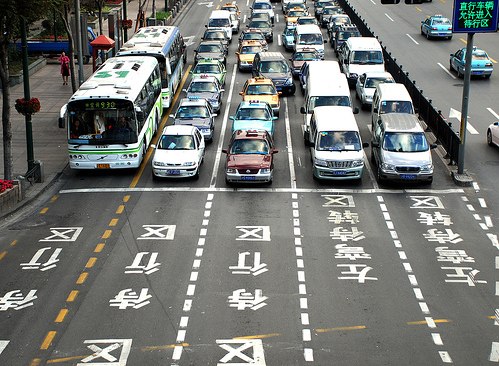China is considering temporarily easing quotas designed to increase production of electric cars to help automakers hit by the coronavirus pandemic to revive declining sales, people knowledgeable with the matter said.
Policymakers in the world’s biggest auto market may also postpone the implementation of a new emission particle restriction by six months to assist the auto industry, which has suffered a 79% decline in sales in February and expects a drop of around 10% in the first half of this year.
To this day, coronavirus has killed 3,318 people in China according to the stats provided by the officials.
The United States had already planned to relax vehicle emissions regulations. President Donald Trump’s administration on Tuesday finished a rollback of vehicle emissions standards adopted under former President Barack Obama. This will require 1.5% annual boosts in efficiency through 2026 – much weaker than the 5% increases under earlier regime.
“Policymakers acknowledged that automakers are strained to promote electric models when total demand is slowing. They want the auto industry to recover steadily this year,” one of the four people knowledgeable with the matter said.
Authorities are still evaluating the details of the plan, which has yet to be finalized, sources said, declining to be named because of the sensitivity of the matter. The review is being discussed with authorities at industry and environment ministries along with automakers and industry bodies.
The policy transition comes as Xin Guobin, vice industry minister, stated on Monday that China would “make adjustments on new energy vehicles and related policies to further promote the coordinated and healthy development of the automotive industry”.
China requires automakers in the country to adhere strict rules covering the production of so-called new energy vehicles (NEVs) as part of a quota system.
China hopes NEVs, such as battery-powered electric vehicles, plug-in hybrid and hydrogen fuel-cell cars, will represent for around a quarter of all cars sold in the country in 2025, increasing significantly from 5% in 2019.
As a result automakers, such as Tesla, Volkswagen, General Motors, Toyota and Geely, have boosted EV production. But the system has also been criticized for offering few incentives for automakers to improve gasoline cars’ performance.
The modification in policy is largely intended at helping automakers focus on selling more profitable gasoline vehicles to improve their cash flow. But a small group of companies — mainly Chinese automakers such as BYD — are already making profit from electric vehicle sales.
The temporary easing of NEV quotas is likely to permit companies to delay new model launches, which have more expensive technology than conventional vehicles, and also discourage them from aggressive marketing.
China’s vice industry minister Xin said the auto industry still dealt with great difficulties and challenges.
“Even though production has resumed to a relatively high level, it is possible that some enterprises would slash production in the subsequent period due to insufficient market demand and increased inventories,” he stated.
To encourage demand, China said that it will extend both subsidies for NEV purchases and their purchase tax exemption for two years.


